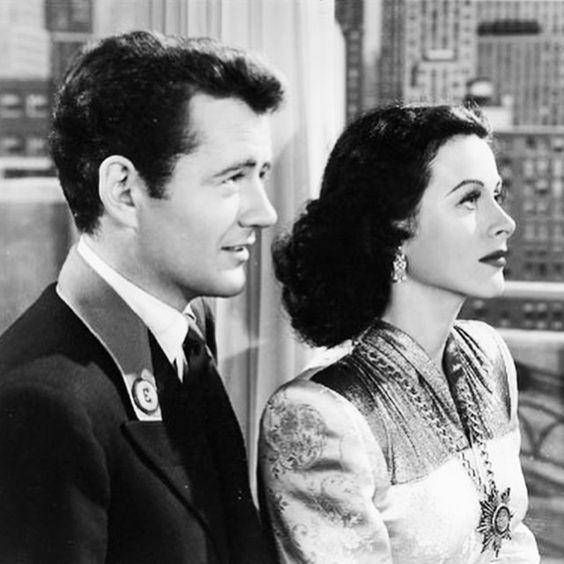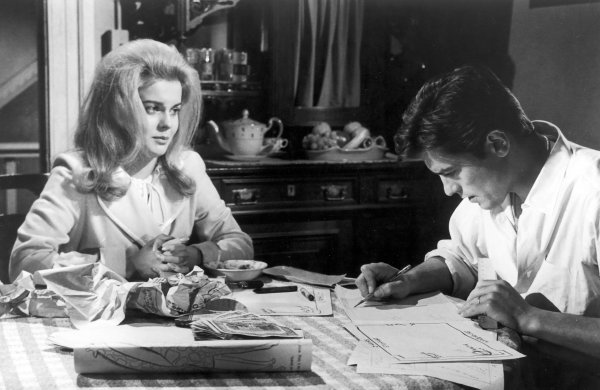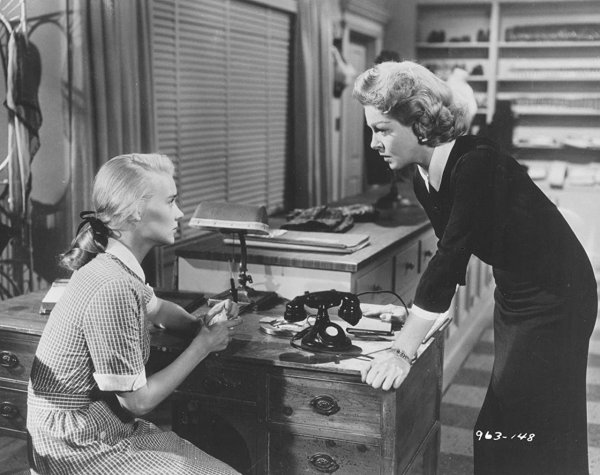Worf
I'll Lock Up
- Messages
- 5,248
- Location
- Troy, New York, USA
Saw this some years ago... hit me like a freight train headed west. Such emotion, raw anguish and pain, not your typical English fare. The scene where his wife snearingly, mockingly compares his end to that of Donat in "Goodbye Mr. Chips". I wanted to do murder, I wouldn't kick a dog when he's down much less a man who's given his life to educating youth... not matter how poorly he may have done it.View attachment 396549
The Browning Version from 1951 with Michael Redgrave, Jean Kent, Wilfrid Hyde-White and Nigel Patrick
Writer Terence Rattigan specializes in showing the agonizing pain of "ordinary" lives of quiet failure. In Rattigan's The Browning Version, a middle-aged teacher (a "master"), Michael Redgrave, at an English boys school is leaving owing to a heart condition requiring him to take a less-demanding position elsewhere.
We see in Redgrave's final days at the school that he is out of touch with his students. They know he is a brilliant scholar, but they also see him as an aloof disciplinarian, who, to their eyes, is devoid of human emotion and sympathy.
The oleaginous headmaster, perfectly portrayed by Wilfrid Hyde-White, says all the right things to and about Redgrave, but is obviously happy he is leaving even as it becomes clear Redgrave has, without recognition, helped the headmaster improve the school's curriculum.
In a final parting shot, the headmaster tells Redgrave his request for a pension exception owing to his illness - he is short the required number of years for eligibility - has been denied by the School Board.
Worst of all, Redgrave's younger wife is carrying on an all but open affair with a bachelor science teacher at the school. Even with that setup, Redgraves so perfectly fits the role of cold, distant and arrogant teacher that our sympathies initially lean with his antagonists.
Then a series of events reveals a more human and painful understanding of the man. One of the rare students he reached brings Redgrave a touching going away present. Redgrave then learns his nickname is "the Himler of the lower fifth" (his class) at the same time his wife's affair comes fully out in the open. These incidents cause Redgrave to think back to the beginning of his academic career.
Eighteen years ago, when Redgrave came to the school, he and his wife thought his talents as a scholar would lead to a successful teaching career. But he didn't have the personal skills to reach his students or interact with his peers, which caused him to pull in on himself and others to pull away.
Had he asked for help or had others offered it, perhaps he could have turned his career around, but instead, eighteen years later, we see an outwardly hardened, but inwardly broken man.
Clearly not helping is his status-conscious wife who, instead of trying to lift him up, belittles him at every opportunity. Redgrave himself is understanding seeing their failed marriage as equally his fault owing to his unsuccessful career. Maybe, but watching his wife constantly and viciously undermine his confidence and self respect leaves us less forgiving of her than Redgrave is.
Finally, we see Redgrave's deep hurt at his "Nazi" nickname as he thought he was a bit of a "comical" figure to his students and teaching peers, but did not think they viewed him as mean and heartless.
Processing all this information in his last remaining days at the school, Redgrave's epiphany moment comes, unfortunately, too late to save his career or marriage (the latter is better off not saved). Yet, in his final actions and parting speech, we see a man who could have been a better version of himself if he himself, his wife, his peers and his headmaster had tried to help him.
A common theme of writer Terence Rattigan's work is that many good people are broken because they are square pegs trying to fit into the rigid round holes of the British class system. A system which, with its social and cultural structure that admires conformity, quietly but ruthlessly ostracizes those who are unique or different or perceived as "not quite up to snuff."
In The Browning Version, we meet a seemingly cold and antisocial teacher who appears to "deserve" the scorn and disdain others publicly and privately feel toward him. But director's Anthony Asquith's powerful interpretation of Rattigan's play reveals a more nuanced and heartbreaking story of an awkward man whose potential is destroyed early by an inflexible system, an unforgiving wife and unsympathetic peers.
The Browning Version has no special effects, no bombast and only some melodrama. Instead, it's just a poignant tale about a fully drawn "regular" man whose life has sadly, quietly and unnecessarily failed.
N.B. Michael Redgraves' performance here is impressively nuanced and poignant, especially considering he is playing a man who keeps his emotions and, even, thoughts inside.
Worf






